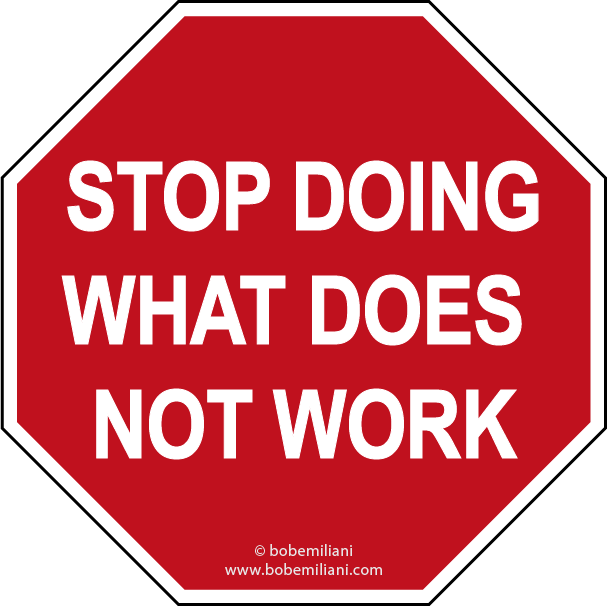
Nothing disappoints me more than to see my impassioned colleagues labor to advance Lean management using arguments that go back 100 years and which are known to be ineffective. What the purpose of doing that? Is it stubbornness, ignorance, clinging to an outdated worldview, or an inability to destroy their preconceptions? For being on the forefront of progressive management, some of this “Lean thinking” is long out-of-date. It is difficult to see how Lean management can evolve or gain greater acceptance among CEOs using old and ineffective arguments.
If CEOs interest in Lean steadily increased over the last 30 years, then I would happily admit that the old arguments remain useful. But the fact is, CEO interest in Lean has clearly declined over the last 30 years, and so continuing pushing old arguments makes no sense and exposes the existence of a significant disconnect to the facts. One example of an antiquated argument is that CEOs must change their behaviors. Here is a small sample from the last few years:
- Changing Leadership Behavior Gets Real Results by John Toussaint
- The CEO Leading the Culture Change at ZSFGH, by Mark Graban
- The Formula for a Successful Management System: LB * OS = MS by Jim Morgan
- Why We Believe that Lean is About Changing Our Own Behaviors, and Not Just Accumulating New Knowledge by Lean Sensei Women
- Why So Many Companies Fail On The Way To Transformation by Nigel Thurlow
This is from people who are supposed to be “in the know.” Yet I find that often the people “in the know” are anchored by preconceptions and saddled with confirmation biases. Their thinking has remained static; it has not evolved as one would expect of prominent Lean advocates. Instead, they vigorously defend what they know, having learned it decades ago, and ignore newer (or older) information that contradicts what they know. This is not unusual. It happens to most “experts” late in their career. It will likely happen to me as well, someday, when I stop learning and growing. (But maybe not, since key elements of my work, I am told, are years ahead of their time!).
Lean promoters continue to work off the old flawed model that “changed behaviors = changed results.” This model, about 100 years old, ignores leaders’ beliefs and assumptions, which are informed by preconceptions and cognitive biases, and is thus ineffective. By continuing to promote this model, they inadvertently retard the advancement of Lean management and diminish its acceptance among CEOs. Their earnest efforts are wasted, as are the efforts of many other people who are sent in the wrong direction in pursuit of convincing CEOs to adopt Lean.
We are doomed to failure without a daily destruction of our various preconceptions — Taiichi Ohno
Achieving the much-desired “culture shift” requires destroying one’s preconceptions. That occurs not when leaders read, watch, or listen, but by their personal participation in kaizen. Yet, CEOs’ case against Lean is formidable because their preconceptions are firmly rooted in archaic classical management, which is defined by eight major categories of preconceptions — economic, social, political, historical, philosophical, legal, business, and spiritual. Each category contains 15-20 preconceptions. That’s a lot of preconceptions to destroy!
CEOs interest in Lean will likely decline further if people continue to proffer outdated models and avoid understanding the current state of leadership. My recent work has focused on presenting an accurate understanding of the current state of leadership rooted in classical management (click here to learn more). I present “the lay of the land” so that people can understand the complex and interconnected nature of classical management’s preconceptions (and hence its dominance), the detailed understanding of which is a prerequisite to more gaining greater acceptance for Lean management among CEOs.
I hear people say “Lean is all about learning.” So, learn something new, develop new ideas, try out your ideas, and see what works. That is more productive than continuing to do what does not work.
